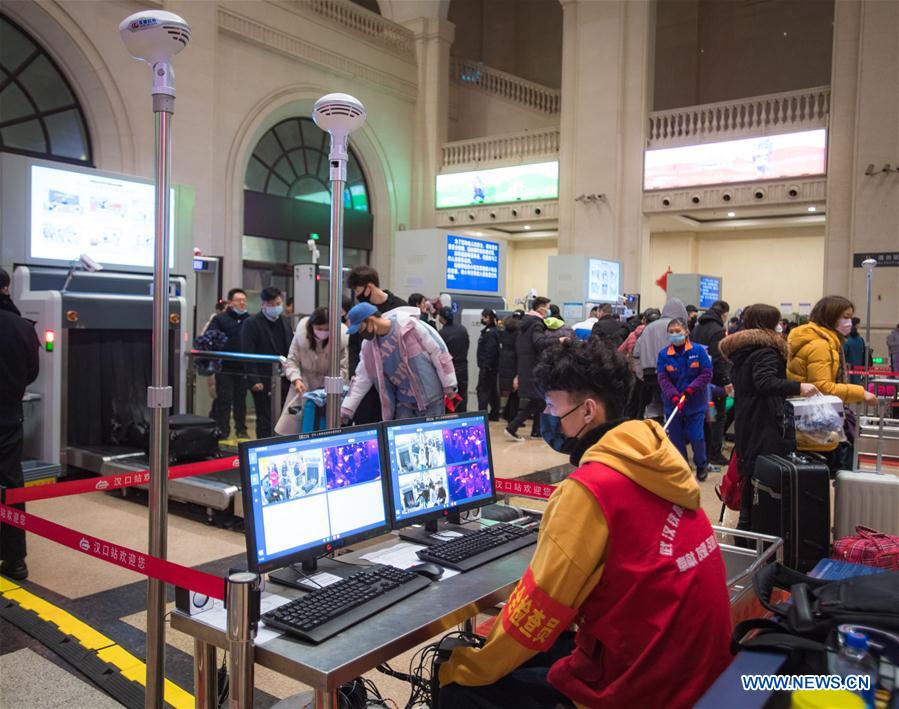
A staff member checks passengers' body temperature at Hankou Railway Station in Wuhan, capital of central China's Hubei Province, Jan. 22, 2020. Chinese health authorities announced Wednesday that 440 confirmed cases of pneumonia caused by the novel coronavirus (2019-nCoV) had been reported in 13 provincial-level regions in the country by the end of Tuesday. Strict measures have been taken to prevent the spread of the virus. A total of 15 thermal detectors have been set up in the Wuhan Tianhe International Airport, and 20 thermal detectors have been installed in three major railway stations of the city. (Xinhua/Xiao Yijiu)
BEIJING, Jan. 22 (Xinhua) -- Chinese health authorities announced Wednesday that 440 confirmed cases of pneumonia caused by the novel coronavirus (2019-nCoV) had been reported in 13 provincial-level regions in the country by the end of Tuesday.
The cases had resulted in nine deaths, all in central China's Hubei Province, said Li Bin, deputy director of the National Health Commission, at a press conference.
Altogether 149 new confirmed cases were reported Tuesday, Li added.
Overseas, one case has been confirmed in Japan, three in Thailand, and one in the Republic of Korea.
A total of 2,197 close contacts have been traced, figures from the commission show. Among them, 1,394 are under medical observation while 765 others have been discharged.
The cases of infection have been on the rise recently, which is possibly due to improved diagnostic methods and advanced reagents for confirming the new coronavirus-related pneumonia, Li said.
Experts also said that respiratory transmission is the main path of contagion and the virus is likely to mutate, which will increase the risks of it spreading.
The commission has been releasing daily reports on the number of confirmed cases and suspected cases since Jan. 20.
Experts called for being alert as there will be increased population mobility amid Chinese Lunar New Year.
Strict measures have been taken to prevent the spread of the virus. A total of 15 thermal detectors have been set up in the Wuhan Tianhe International Airport, and 20 thermal detectors have been installed in three major railway stations of the city.
The city will also strictly monitor and control the farmer's markets as well as the supermarkets and restaurants, as well as toughen crackdowns on wild animal trade, Li said.
He added that public gatherings will be restricted, and unnecessary entry and exit trips to Wuhan will be called off.
"We should be strictly on guard against the pneumonia situation spreading outside Wuhan," Li said.



